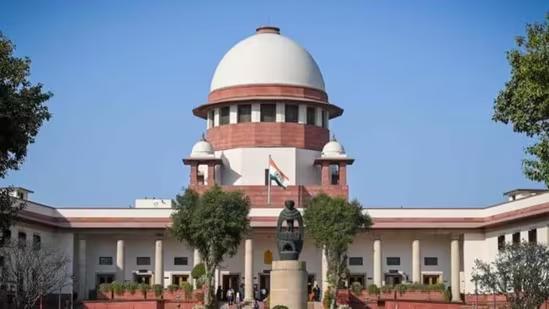
Court Can’t Grant Assent to Bills, Only Governor & President Can: Maha to SC
The ongoing debate over the role of the judiciary in the legislative process took a new turn on Tuesday, with the Maharashtra government arguing in the Supreme Court that courts cannot accord assent to bills and only the Governor and President have the power to do so. This comment was made by Senior Advocate Harish Salve, representing the Maharashtra government, during a hearing over a presidential reference on whether the court could impose timelines for the Governor and President to deal with bills passed by state Assemblies.
The presidential reference was filed after the Maharashtra government passed the Maharashtra State Legislature (Prevention of Bribery) Amendment Bill, which was then returned by the Governor without giving assent. The Governor’s decision was challenged by the state government, which sought a direction from the court to the Governor to give assent to the bill. However, the Governor refused to do so, citing the constitutional provisions that empower him to give or withhold assent to a bill.
The Maharashtra government’s argument is based on the constitutional provisions that give the Governor and President the power to give or withhold assent to a bill. According to Article 200 of the Constitution, the Governor has the power to give assent, withhold assent, or reserve a bill for the consideration of the President. Similarly, Article 111 of the Constitution gives the President the power to give assent, withhold assent, or reserve a bill passed by both Houses of Parliament.
The Maharashtra government argued that the courts cannot usurp the powers of the Governor and President, and that any attempt to do so would be unconstitutional. Senior Advocate Harish Salve, representing the Maharashtra government, submitted that the courts can only declare a law as unconstitutional or void, but cannot impose their own views on the Governor or President.
The Maharashtra government’s argument is in line with the Supreme Court’s previous judgments on the issue. In the case of Union of India vs. State of Kerala, the Supreme Court held that the Governor has the power to give or withhold assent to a bill, and that the court cannot intervene in the exercise of this power. The court also held that the Governor’s decision is not subject to judicial review, except in cases where the Governor’s decision is clearly arbitrary or violative of the Constitution.
The Maharashtra government’s argument has been endorsed by several constitutional experts, who have pointed out that the courts cannot usurp the powers of the Governor and President. According to Professor N.R. Madhava Menon, a leading constitutional expert, “The courts cannot impose their own views on the Governor or President. The Governor and President have the power to give or withhold assent to a bill, and the courts can only declare a law as unconstitutional or void.”
The Maharashtra government’s argument is likely to be opposed by the opposition parties, which have been demanding that the court impose a timeline on the Governor and President to deal with bills passed by state Assemblies. The opposition parties have argued that the Governor and President have been delaying the passage of bills for too long, and that the court should intervene to ensure that the legislative process is not stalled.
The hearing on the presidential reference is ongoing, and the court is expected to deliver its verdict soon. The verdict is likely to have far-reaching implications for the legislative process in India, and could potentially resolve the dispute over the role of the judiciary in the legislative process.






